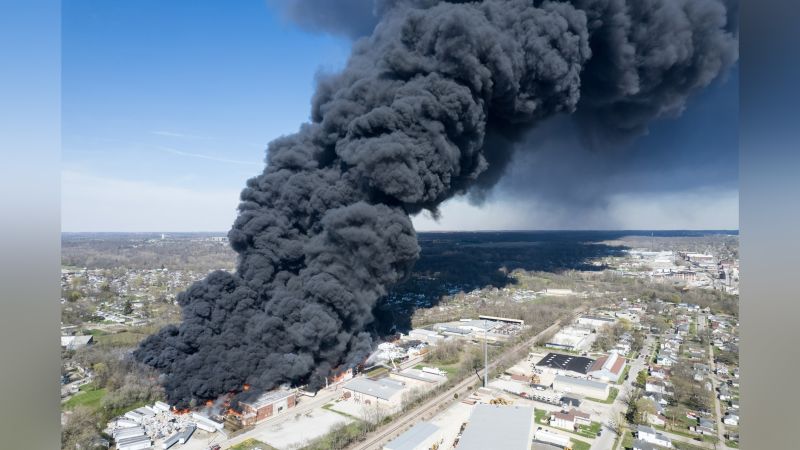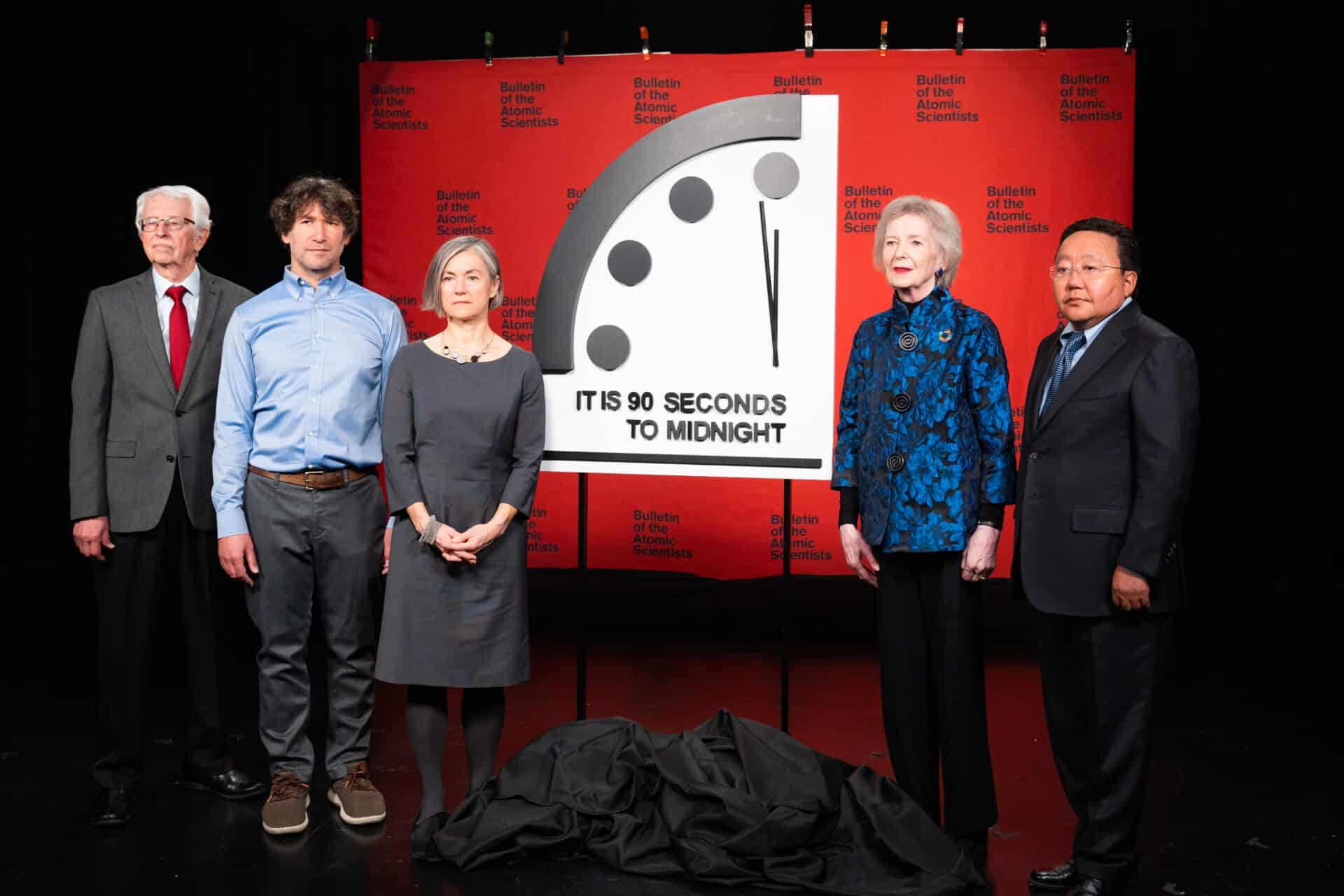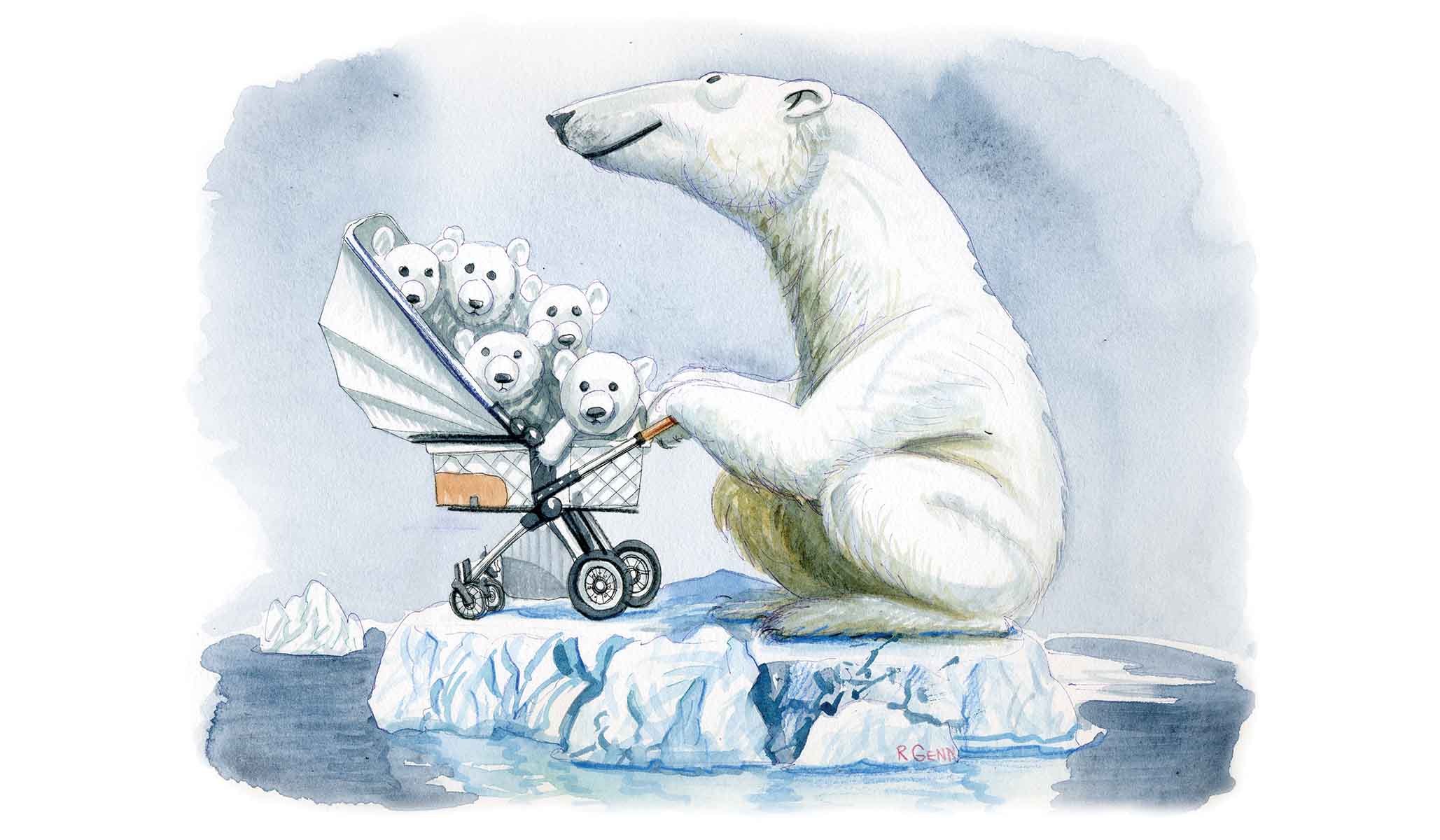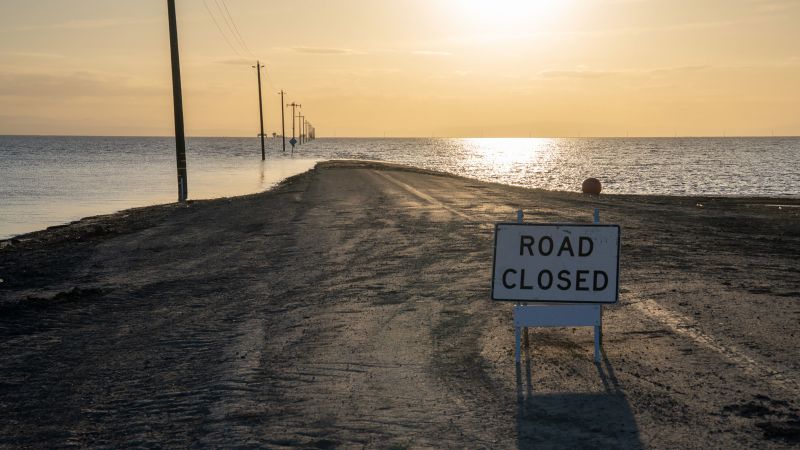- The Rembis Report and Other Fascinating Topics
- Posts
- The Rembis Report and Other Fascinating Topics - Volume XCIV
The Rembis Report and Other Fascinating Topics - Volume XCIV
The Road To The Brink Of Oblivion - Part VI

This newsletter is the last in a series of six weekly editions as we count down to Earth Day 2023. This series focus is on recycling, fossil fuels, mining, pollution, climate change, and the existential threat of annihilation as the result of war. If you are just tuning in please click these links to read the first five parts and get caught up.
Remember your last road trip?
Most everyone has been on a few. Maybe inside a van packed with everything ready to camp, or just a motorcycle with a light duffel, you got out there and saw the world. Did some hikes. Enjoyed some roadside attractions. Ate a couple of meals with menu items you don’t usually see, maybe rattlesnake chili, or bubble tea. You savor everything on those trips, every memory as you make it. Maybe you filmed it or took a few selfies. Maybe you penned a journal along the way.
So, now that you find yourself on the road to the brink of oblivion, what notes are you taking? Which pictures do you hold most dear as evidence of your existence? What memories would you like to share?
I will remember my roots - where the road began. Recycling with a vengeance. Saving every bit of plastic and cardboard and paper and glass and placing it all in the correct bins, so that it would slow down the cutting of forests and drilling of oil, with faith that the single use plastic spoon I got at the ice cream stand would be melted down and born anew. Thinking that my napkin and cup, when properly recycled, would save a tree.
Recycling is great when it works. In theory, it could slow down forestry, mining, and oil production. In theory. The reality, however, is that consumption outpaces production in nearly everything that we humans like to use. And that much of the time recycled goods cost more to make than using raw materials, so the financial incentive to compete is reliant upon the good will of the consumer. People have to be willing to pay more to use recycled products.
But when you hold up two identical plastic spoons and tell the guy at the ice cream stand who buys and gives those plastic spoons away to his customers that the recycled ones cost more, guess what - the only way he will buy them is if he sees the value in recycling.
This is a tip-of-the-iceberg example. While there may be a few ice cream stand owners that dig saving the environment (thanks, and good for them) there are thousands more who look at it as a waste of money because they believe that recycling doesn’t work. It doesn’t matter that landfills are filled with plastic that could be mined and recycled because the financial incentive is not there. Saving the environment, or rather, not saving it, boils down to one thing.
It is all about the money.
So, until bringing your own flatware to restaurants becomes popular again, like it was in the early days of dining out, we will rely on the food sellers to provide us with utensils. Whether they are washed and recycled or discarded is no concern to the customer. They just want to eat.
And some people just want to recycle. A huge fire broke out at a recycling plant in Indiana this week. It quickly got out of control and crimson wisps of hazardous material flew into the sky to land in neighboring yards up to a half mile away.
The fire is out now, but still smoldering, and the air is sick with chemicals. It is not a safe place to be, by any means.
To understand how this happens, not the fire itself, but how so much plastic gets stockpiled into one place, it is important to realize that plastics recycling is a niche market. Not everybody can do it, and not everybody wants to try. Eking a buck out of used plastic is quite a chore. It takes tons of plastic to be profitable. The recycling was not even being done at this site. This was a way station that sent plastics to 29 different countries. It all had to be collected from somewhere, then sorted, then they have to find somebody to buy it, somebody who knows how to turn it into new plastic to make money.
Yes, it is all about money again, but it shows that at least somebody is trying to do something to recycle. And realistically, you can't expect people to work for free, so recycling does cost money. But it is not the kind of profit that Big Money wants to get into. Big Money likes quick turnaround and a sweet return on investment without a lot of work.
The World Economic Forum is driving the conversation of plastics recycling and urging Big Money corporations to do more to recycle, pointing out that by 2050, twenty percent of all oil will be dedicated to making plastic. Making Big Money understand that they should want to invest in this will be the hardest part, because if it is more profitable not to recycle, they won’t. It will take a dedicated mindset on a grand scale to make more recycling happen.
More plastic means more pollution, in the air when it is made, and on the ground, and in the sea when it is discarded. Maybe some Big Money managers will get it and a huge recycling push will begin. Or maybe it won’t.
But try not to think about that. Just enjoy your road trip. Don’t even bother to look at the clock. It isn’t that late yet. It is only 90 seconds to midnight. There is plenty of time for you to reach the brink and take a snapshot of the last sunset before the world ends.
The Doomsday Clock is ticking. It first appeared in 1947 in response to the buildup of nuclear weapons in the USA and Soviet Union. It was only seven minutes to midnight then. Over the years it has fluctuated and the furthest we have ever been from midnight was in 1991, when we had a full 17 minutes to ponder our fate. While it began by tallying the nuclear threat, it has expanded to include multiple existential risks, including our biggest threat, climate change. Now, in 2023, it is the closest it has ever been to the end of the day, at 90 seconds.
But take your time. Relax. As we roar through the valley of the shadow of death, fear no evil, for the butterfly effect is in motion. Rest assured that everything happens for a reason.
Winds blow and climates change. The atomic scientists setting the hands on the doomsday clock may be wrong. This National Review article by Bjørn Lomborg points out how the math of climate change does not always add up.
Yet what Bjørn Lomborg focuses on more than anything are the economics of the climate crisis; how much it will cost and how many lives are at stake. So, he is not addressing the point that I make. What we are doing to the planet is about the planet, not about its human inhabitants. Sure, we may learn to live with pollution, but only up to a point, and that point will be when the planet decides to extinguish us.
We can try to fend it off with better lithium ion batteries.
We can free Lolita the Whale. Or not. Some folks are against setting her free, saying that she will not be able to fend for herself in the wild. I say let’s find out. Are wild animals homeless or are zoos jails? You decide.
We can ignore climate change. Or fight about it for no good reason except to spend money. Waste resources on advertising to peddle lies (or opinions) and watch what happens.

Wow.
The overarching main concern in every argument against climate science is damage to the economy. The CO2 Coalition urges us to accept that climate change is good for the planet and that higher levels of carbon dioxide in the atmosphere will do more for plants. Yes, indeed. More carbon dioxide will help plants grow. It will also choke out much of the life that produces carbon dioxide to feed the plants, and without them, that symbiotic relationships fails, and the planet dies. Note what the CO2 Coalition says in their About Us blurb: Approaches to policy that do not adhere to the scientific process risk grave damage to the economy and to science.
Their climate crisis boils down to money. Money comes before science.
The climate crisis - any existential crisis we face - is never about the planet. It is about money.
But you don’t always hear it put that way. Most of the time, anyone fighting for either cause, (pro-economy or pro-ecology, it matters not) will chant about saving lives. Their arguments will not be for the planet, they will be for humanity. Look at how many lives we could save, if only . . . Look at how many lives were lost because . . .
This is why I root for the underdog, the anti-hero. Mother Nature. She has so much going against her, but I hope she wins. Because Earth is about the synergy of all life and longevity of being, while mankind is mostly just about money; a pointless and relatively short-lived concept that serves the psyche of only one life form.
I love the uncertainty of chaos wrought by the planet. Yes, I myself witnessed some devastating hurricane damage last year, and that was sad for those unfortunate enough to be in the path of destruction, but there is a beauty to it. Tornados touching down in the plains, lava rushing across a landscape, a tsunami taking no prisoners, rising steady and slow and swallowing everything it can reach. Mother Nature presents a wild cotillion for us to either sway along with or get off the dance floor.
We have all seen what she can do.
You have watched those dystopian dramas about the last people on Earth and thought to yourself, I know what I would do. But do you, really? If you were the last person, or one of the last you knew of, what would you do? Try to save the planet? How?
The science fiction fantasy 12 Monkeys imagined a world destroyed by a pandemic and a lone time traveler working toward preventing that tragedy. ***SPOILER ALERT*** Yet, the time traveler fails, and the man responsible for setting a virus loose on the world does so. He kills off most of the human population to save the planet. That is kind of beautiful.
That could have been what went wrong with Covid. Maybe it was meant to kill us off and we defeated it. Maybe that was just a test and a meaner, more dominant strain is coming. Maybe it is here. Mother Nature may not like what she sees right now and some unstoppable plague will punch the reset button.
We can dream.
Just when you thought you were about to eclipse the shadow, the road to the brink of oblivion banks over the next crest and drops straight downhill at a forty percent grade.
Time to start reevaluating everything you are doing to save Mother Earth, and if you will. Do you really save a tree with paperless billing? Or are you just trading one level of devastation for another. Tree farms, managed properly, are sustainable resources. Electricity to save that digital receipt is burning coal to do it. Which demon devours the other?
Do you take up arms and join a deadly band of recruits to fight some enemy who bought into a lie? Or are you being lied to about those warriors? Are you all being duped into death?
Can you eliminate garbage by recycling chip bags into fashionable designs? Or is it better to create the illusion that a handbag is worth thousands of dollars to keep rich people rich? I mean, the more you spend on a single handbag, the less likely it is to end up in a landfill, right?
You could ask tons of questions like these to hoards of people all day and never get the same answers twice. Some are going to look at the revival of Tulare Lake and see a miracle while others cry that they see devastation.
When I see a sinkhole become a lake, or an iceberg crack off the edge of Antarctica to make sea levels rise, or a glacier disappear to reveal something we would never have seen had it not melted, I am fascinated by it. Even if the global warming I participated in caused these events, they still amaze me. And I love watching them because, just like a finely edited cinematic car chase sequence, I want to see what happens.
I know my opinion is unpopular, but it is mine, all mine, and I stand by it. I feel that when Mother Nature kicks you out you should leave. Don’t drain lands below sea level and fight back with levees. Don’t rebuild in flood zones, just go away. Find another place to live.
When trains derail and spill chemicals or when tons of pollutants burn up in a massive fire, don’t clean up that town and remediate, accept that it is destroyed and we created a wasteland. Move out, put a fence around it, and the next time you find that you have toxic garbage to dispose of, dump it on that already spoiled land instead of shipping it someplace else.
When tornadoes rip through a city, don’t rebuild. Just move along. Same thing for wildfires. A vacancy awaits you someplace. Have a change of scenery. That is what Mother Nature wants.
Enjoy that new lake she built for you in California. As the ocean invades, take advantage of long walks on the new coastline. When volcanoes, earthquakes, and mudslides displace land, trust that what she leaves behind is a firmer foundation with richer soil than what she took away. Take in the new view and know that this is what Mother Nature wants you to see. The world as she intends.
When I weigh it all out, I cheer for the planet, not the people on it. The Earth does not need as many people as there are now. In fact, it doesn’t need any. It did fine for billions of years without us, and it will go on, business as usual, once we are gone.
As we careen toward the edge of midnight, don’t bother looking back, it will do no good. You can’t change the past and the future will be whatever it will be.
Scientists recently filmed the deepest dwelling fish ever seen. I am not so worried about these creatures at the bottom of the sea. One day, maybe a couple hundred million years from now, their ancestors may evolve into the strongest inhabitants of Earth, because they lived through mankind in the twenty-first century and our inevitable demise. Perhaps they will slog out of the ocean, climb onto land, and usher in a new chapter. Maybe their brains will grow large enough to think as clearly as we do, and they will be able to study the history of this planet.
Maybe they will figure out what happened to us so it won’t happen to them.
Thanks for reading.
If you are new to the Rembis Report and would like to read any of the previous issues, PLEASE CLICK HERE to access the archives. To read it from the beginning, PLEASE GET A COPY of The Rembis Report: An Observation.
